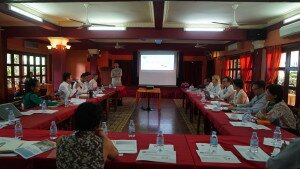 23 September 2016
23 September 2016
The Minority Rights Organization (MIRO) organised a roundtable of key stakeholders to initiate a discussion about how to engage with sustainable development goal (SDG) 16.9 on legal identity in Cambodia on September 13, 2016. The focus was on vulnerable, marginalized and hard-to-reach populations, especially minority groups. While SDG 16.9 carries a promise of inclusion by making the invisible legally visible, insisting on legal identity requirements for accessing rights and services could have the unintended effect of further excluding the most marginalized as these groups may face serious obstacles in obtaining legal identity. … More >>>
